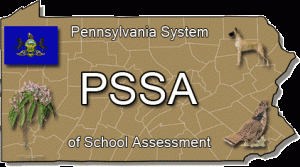There are plenty of misconceptions about cyber schooling. Unfortunately, one of the biggest misconceptions is that our teachers are vastly different from those in traditional brick-and-mortar schools. In reality, 100% of our teachers are PA state- certified, highly qualified, and highly credentialed in their subject areas. In fact, many of our teachers hold more than one certification, and continue to pursue higher educational opportunities after they begin working here.
Our teachers, much like our students, choose 21CCCS for a variety of reasons. But, what keeps them here is a variety of things. Teacher retention is affecting the country negatively, mostly for a general lack of support and organization. One recent Huffington Post article by Aaron Pallas said, “Teachers are more likely to consider leaving their classrooms if they believe they aren’t getting adequate support, and if they believe the school doesn’t function well as an organization.”
Several teachers at 21CCCS agree that one of the things that sets our school apart is its commitment to our beginner teacher mentorship program. It provides that added layer of support and organization that says, “We care about your progress, and we want to help you succeed in your virtual classroom.”
 In an article recently published by Education Week, author Peter DeWitt explored the importance and benefits of “Instructional Coaches,” as he calls them. The overarching premise of his article expressed that individuals best learn develop in a new environment when they are shepherded by an older, wiser, more experienced mentor. Instructional coaches offer novice employees an opportunity to learn and grow as a result of intentional, regular, standards-based collaboration.
In an article recently published by Education Week, author Peter DeWitt explored the importance and benefits of “Instructional Coaches,” as he calls them. The overarching premise of his article expressed that individuals best learn develop in a new environment when they are shepherded by an older, wiser, more experienced mentor. Instructional coaches offer novice employees an opportunity to learn and grow as a result of intentional, regular, standards-based collaboration.
It’s no secret that the most critical years for a new teacher are the first two (if not a few years thereafter as well). In an effort to provide an adequate support system to welcome teachers into a new school, and aid their transition into the new environment, 21CCCS utilizes a set of on boarding standards outlined by iNACOL.
But how does this program work? What specific benefits do they provide? What is the big deal?
All beginner teachers are enrolled in a mandatory two-year induction program. He/she is paired with a veteran, master’s-degree-holding teacher, with whom the beginner teacher will meet outside of work for one hour per week. As the program’s leader, Mrs. Frank explains, “We pair new teachers with other teachers who can provide a nice compliment to his/her skills.”
Mentor time must be face-to-face, offering the opportunity to truly reflect and collaborate. Discussion may include lesson plan differentiation, cyber bullying, current educational events, and other valuable resources (to name a few). In addition to this, all new teachers meet every other Friday as a group. Sitting over lunch, they are able to discuss what they’re learning and engage in a relevant dialogue about teaching in their new environment.
Over time, new teachers compile a reflective presentation of their skills, strengths, weaknesses, and best lessons. These components are artfully woven together to construct a portfolio and presentation. In its largest sense, the portfolio catalogs what an individual has learned, and identifies what he/she still seeks to learn. It is an outline of growth and how that growth will continue and progress in the years to come.
The presentation and portfolio are given to 21CCCS’ curriculum committee, which is comprised of the school’s CEO, principal, and various teachers and staff members. The presentation and group help teachers to identify how they’ve cultivated a skillset, and masterfully woven it into a personalized teaching style.
When I asked teachers what they appreciate about this mentoring/onboarding process, they express: “It’s nice to meet with other teachers who are also getting their feet wet. There is a supportive structure in place here, so that teachers see and learn of the frustrations encountered in the first year.”
Another teacher said, “It’s great to have a designated go-to person to help me with the transition from brick-and-mortar to cyber.” Recognizing the differences between teaching models and strategies is important. Helping teachers to see how to integrate a new skill set into what they already do well is what really helps student success in the long run.
Other teachers have added that what is really special about the program is the fact that it is structured. “It wasn’t always like this,” one teacher commented. “We’ve made it more structured, and it makes a difference.” The prescribed organization not only adds value for its participants. It is also what sets the program from programs in other schools like it. 21CCCS has worked to build a support system that can inspire teachers and help them to achieve success here. They work together to become the best teachers they can be, while constructing a way to highlight and showcase their skills.
What have been the results of the program? For starters, we do not see a ton of turnover in our teaching staff. Folks return, year after year. This isn’t a definitive correlation, but it may say something about what we’re doing right.
Others will argue that the very best part about the program has less to do with just the teachers themselves. The program is great because the students are the ones who ultimately benefit. They have great, self-reflective, constantly growing teachers at their disposal. They get to learn from great people who are interested in making themselves better over time. That is something that makes us really special.



